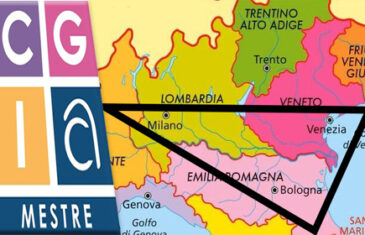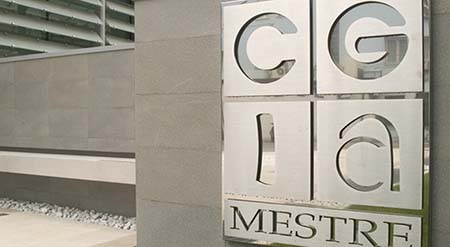Last night at 19.39pm in Mestre (Ve) a bus fell from the Vempa overpass. The scenes that the rescuers found themselves, as confirmed by the mayor of Venice Luigi Brugnaro, were apocalyptic ones. During the thirty meter fall, the bus hit the electrical cables of the railway below, catching fire. The rescuers upon their arrival [...]
read moreAfter a record 2022, the slowdown in GDP growth expected for the current year throughout Europe will also affect our regions without distinction; Lombardy and the Northeast, however, will continue to drive the country, strengthening the leadership of the new enlarged industrial triangle (Milan-Bologna-Venice) which for some decades has "undermined" the historical one (Milan-Turin-Genoa) which, [… ]
read morePrato, Milan, Naples, Rome and Caserta are the realities most at risk. Among the crimes reported last year only usury increased Also due to the economic effects of the pandemic, the suspicious money laundering reports received by the Financial Information Unit (UIF) of the Bank of Italy are on the rise. In 2020 there were 113.187 (+7 percent on [...]
read moreThere are just under 240 thousand Italian companies which, according to the definition of European legislation, have impaired bank exposures. In other words, the Mestre CGIA specifies, we are talking about companies and VAT numbers that appear to be "registered" at the Central Credit Register of the Bank of Italy as insolvent. A classification that, in fact, [...]
read moreThe need to have official and reliable data on the artisanal ice cream sector has long been highlighted by the Longarone Fair. Already in 2011, as part of the MIG-International Artisan Gelato Exhibition, a round table was held to investigate the issue which revealed that the main difficulty in framing the sector was the circumstance [...]
read moreThe data released today by the Mestre CGIA on the trend in loans to businesses do not correctly represent the phenomenon of the support given by banks to businesses. This was declared by the Deputy Director General of ABI, Gianfranco Torriero, underlining that, in particular, the CGIA of Mestre considers only the so-called living jobs, that is, it does not take into account the loans received [...]
read moreItalian families are indebted for an average amount of 20.549 euros. Taken together, the accumulated “liabilities” with banks and financial institutions amounted to almost 534 billion euros. The figures, prepared by the CGIA Research Office, refer to 31 December 2017. Since 2014 the trend has been constantly growing; in the last 3 years [...]
read moreThis was reported by the CGIA coordinator Paolo Zabeo who recalls that the maximum ceiling of interchange fees between payment circuit managers and credit institutions, as required by the 2015 EU Regulation, cannot exceed 0,2 percent of the 'amount of the debit card transaction and the [...]
read moreIn 2016, thanks to the tax control and verification activities carried out by the Guardia di Finanza, over 27.500 irregular positions were reported among total tax evaders, paratotal, and partially illegal workers. This action to combat tax and social security evasion has made it possible to “subtract” offenders from 55,7 billion euros in taxable income; a lower amount [...]
read more






